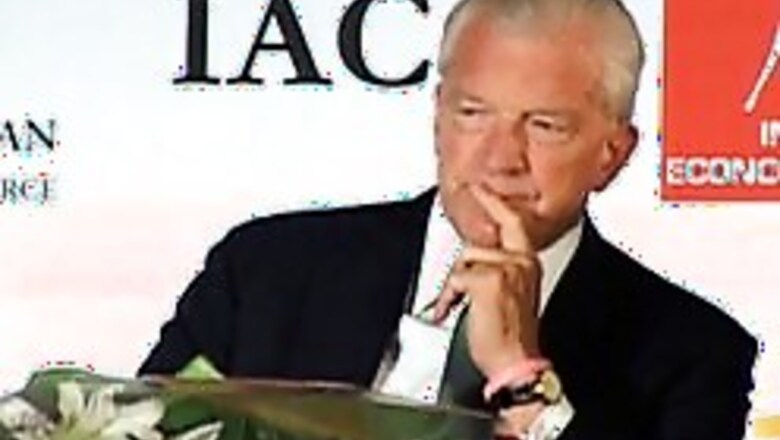
views
New Delhi: US Ambassador David C Mulford told journalists in Delhi on Monday that if the Indo-US nuclear deal is not finalised during the tenure of the current Bush administration and Congress in US, the new administration and Congress might not be able to complete it.
He said that the new administration in US would have to wait until after May 2009, when a new government takes office in India.
"If the processes are not finished during the term of this administration, then we must understand that there will be a new administration in the US and also a new Congress," Mulford said, adding that the nuclear deal issue may not then be taken up till the new government settles down in office, possibly by 2009 or 2010.
"It is practical if the process is completed during the tenure of the current government. In that sense, a timeline is important. There are practical problems here and it is desirable that we move forward. But we are not pushing. We are patiently waiting for India to complete the processes," the envoy said.
Mulford, however, was quick to underline that Washington was "not pushing" India as "it has highest respect" for the political processes of this country.
The comments came as talks between India and the IAEA on safeguards agreement continue amid stiff opposition from the Government's Left allies to operationalisation of the deal.
Keeping in mind the way the Left allies of the government reacted the last time Mulford asked India to conclude the deal quickly, the envoy was cautious this time and emphasised that the US was waiting for India to complete its political process.
"We are not pushing. We are patiently waiting for India to complete its process and conclude a safeguards pact with the International Atomic Energy Agency (IAEA)," he said.
"The US respects India's political process. It underlines our keen desire not to interfere in the domestic political process.
"We will wait for India to work through. The US will be ready to do its own part. I hope it will be successful," he said, while making a strong pitch for the deal, which he stressed was "good for India, good for the US and good for the world". "The earlier we start, the better it is."
Asked if he had any time framework in mind, the envoy said: "I can't speak for the NSG (Nuclear Suppliers Group). I don't know how much time it will take for the NSG. We know there are different views in the NSG. It's not constructive to speculate," he replied, when asked about the deal's fate in the 45-nation NSG.
(With inputs from agencies)



















Comments
0 comment